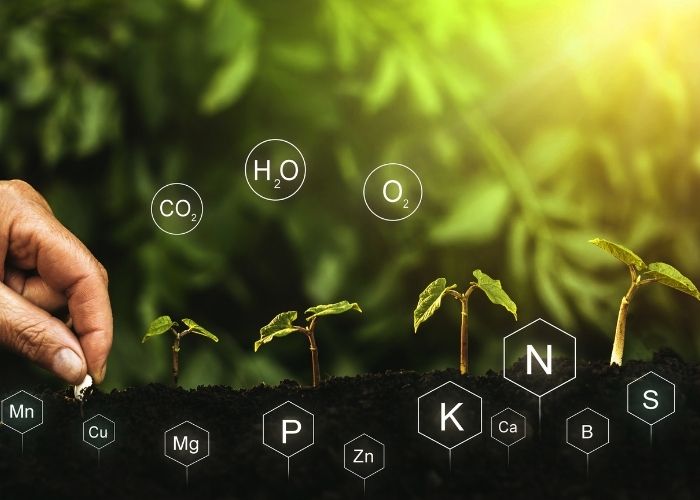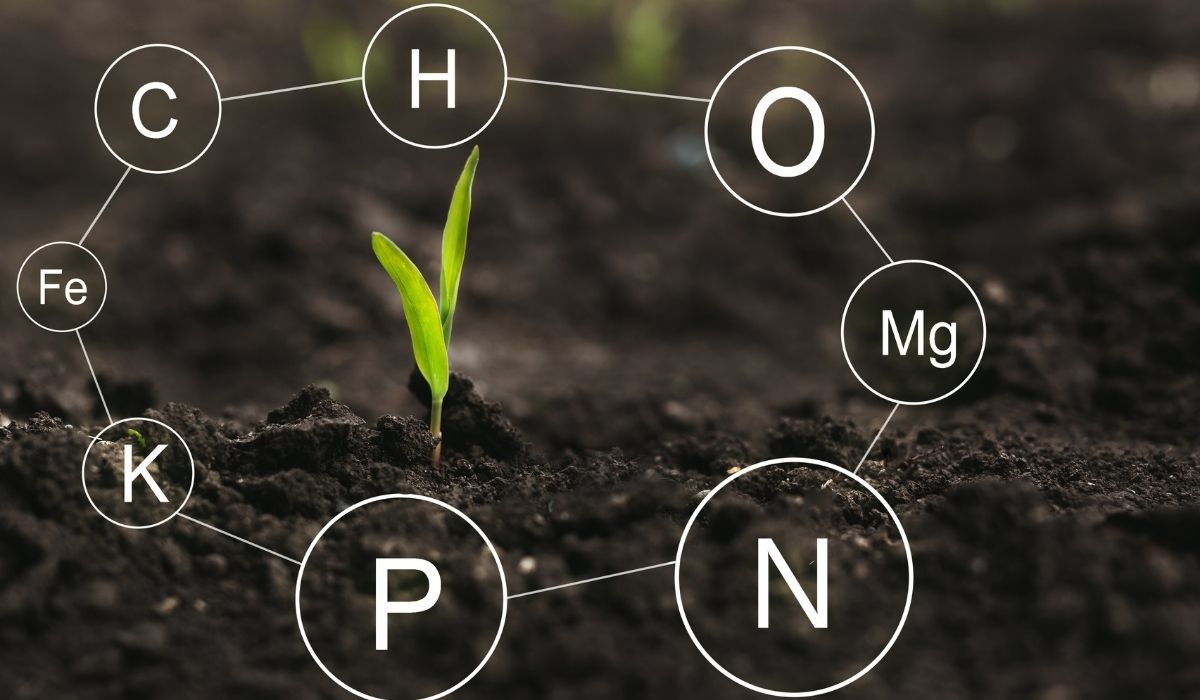It is essential to provide micronutrients and macronutrients for plant growth to enhance your plants’ journey.
Plants are very important and need a lot of energy from the air, water, soil, and sun. Plants absorb nutrients from the soil through their roots and use them in different ways to make the plant grow and produce more fruits.
In this article, we will discuss what micronutrients and macronutrients are for plant growth?
Contents
What Are Micronutrients And Macronutrients For Plant Growth?
Micronutrients
Micronutrients are the small number of chemicals that are present in soil, water, or air that help plants to grow faster. These nutrients are available in the form of salts, acids, alkaline, or other chemicals. They help to increase the strength of the roots and leaves of the plants.
A micronutrient can be in the form of a liquid, powder, gel, tablets, granules, or any other physical form. All these forms of micronutrients are available in the market, and one must know which one is suitable for the plants they are growing.
Macronutrients
These are the main nutrients needed for plant growth. The macronutrients include nitrogen, phosphorus, and potassium. These elements help in the production of cell walls and also help in the synthesis of chlorophyll, which is necessary for photosynthesis. Macronutrients play an important role in a plant’s growth and development. Plants need a certain amount of these nutrients at different stages of their growth to produce fruits and flowers.
The Three Essential Macronutrients
- Nitrogen (N) is one of the most vital macronutrients that are essential for plant growth. Nitrogen is necessary for the production of proteins, amino acids, and nucleic acids in the plant. It is also required for the synthesis of chlorophyll, which is the most important pigment in plants. Nitrogen also helps in the production of other pigments like anthocyanin. It is also used to synthesize nitrates and nitrites, which are used as fertilizer in agriculture.
- Phosphorus (P) is another macronutrient that is required by plants. Phosphorus is present in a plant’s root system, and it is required for the growth of a plant’s stem and leaves. It is also used to make up for phospholipids and fats. Phosphorus is also used in the formation of cell walls. Phosphorus is also used in the production of DNA, RNA, and ATP. Potassium (K) Potassium is also an essential macronutrient.
- Potassium is found in all living organisms, including animals and plants. It plays an important role in photosynthesis and helps to regulate the water content of the plant. The macronutrient is also necessary for the formation of cell walls and also helps in the formation of chlorophyll. Potassium is also required for the production of amino acids, enzymes, and proteins.

Learn more about How Long Does It Take For Pine Trees To Grow?
The Work Of Micronutrients And Macronutrients For Plant Growth
The micronutrients and macronutrients work in plant life is the most important and basic principle in agriculture.
- The micro and macronutrients are the two most important elements that play the main role in plant growth.
- These two groups of elements are essential for the growth and development of the plant. In the absence of these elements, there will be no plant life.
- These elements can be used to increase the yield of crops.
- These elements are required to sustain and maintain the growth of the plant.
- These elements are required by the plants to grow, reproduce, survive, develop and produce yield.
- These two types of elements are required to sustain plant life.
- The micro and macronutrients are required in the right amount to make the plant healthy.
- These two groups of elements are used to make the plant strong and healthy.
- The micro and macronutrients that work in a plant life cycle are an essential part of life.
Learn more about A Guide On How To Customize Garden Fertilizer
How To Increase Micronutrients And Macronutrients For Plant Growth In The Soil
We would recommend a product called “Plant Food”. It is a water-soluble fertilizer that contains all the nutrients your plants need to grow. It can be applied at any time during the growing season. It’s easy to use, and it’s economical. It will help you get more out of your garden.
1. Choose fertile soil with a high nutrient content.
2. Add fertilizer to the soil when needed.
3. Use a mix of organic fertilizers and chemical fertilizers as per requirement.
4. Keep the soil well moist, but not too wet.
5. Maintain good soil structure by adding composts, vermicomposts and peat moss regularly.
Read more about How To Make Sugarcane Grow Faster
Final Thoughts
The micronutrients and macronutrients for plant growth are the most essential nutrients a plant needs. However, the micronutrients are not readily available to a plant. They are available in the soil only when they are present in the form of organic compounds.
Soil is the best source of nutrients for plant growth. If these nutrients are not available to a plant, then it cannot grow. These nutrients are present in the soil in the form of different types of minerals and organic substances.
Find more information about The Best Fertilizer For Hydrangeas
Frequently Asked Questions
What are the roles of macro and microelements in plant life?
The role of the micro and macro elements in plant life is to support the growth and development of the plant. The microelements help in the formation of chlorophyll, which is a green pigment that helps in photosynthesis and provides energy to the plant. The macro elements provide nutrients to the plant that help in the production of plant tissues such as leaves, roots, stems and seeds.
What is a micronutrient for plant growth?
A micronutrient is a small molecule that has a direct and positive effect on the growth of plants. These molecules are usually found in soil, water, or air and are absorbed by plant roots to help them grow. They are often referred to as macronutrients because they are needed in large amounts. Micronutrients are also known as micronutrients because they are needed in small amounts.
How do macronutrients affect plant growth?
Macronutrients are the major components of soil that plants take up and use to make their own food. They are generally inorganic, meaning they contain atoms other than carbon (C), hydrogen (H) or oxygen (O). Nitrogen (N) is a common macronutrient because it is an important component of proteins and other organic compounds. Phosphorus (P) is another important macronutrient.
Is water macro or micronutrient?
Water is considered a macronutrient because plants need a lot of it to survive, however it does not contain any carbon or energy. The more you water, the more you are adding nutrients to your soil. The more nutrients you add, the more your plants will grow and produce. Water is essential for the growth of your plants, so it's important that you learn how to water properly and not overwater. Water should be applied in a timely manner.
What causes deficiency of micronutrients in plants?
The deficiency of micronutrients is caused due to the loss of these elements from the soil, which is a natural process. However, if this loss is excessive, then the nutrient deficiency becomes serious and results in a range of problems such as stunted growth, poor crop yield, low resistance to diseases and pest attacks, as well as reduced photosynthetic efficiency.
A garden is a place that relaxes us and reflects our personal style, it’s a place to spend time with loved ones and grow our own fruits and vegetables. Maybe you’re looking for design inspiration or plant selection, or you’re concerned about garden privacy, shady areas, or pests, but don’t worry, you’ve come to the right place.
